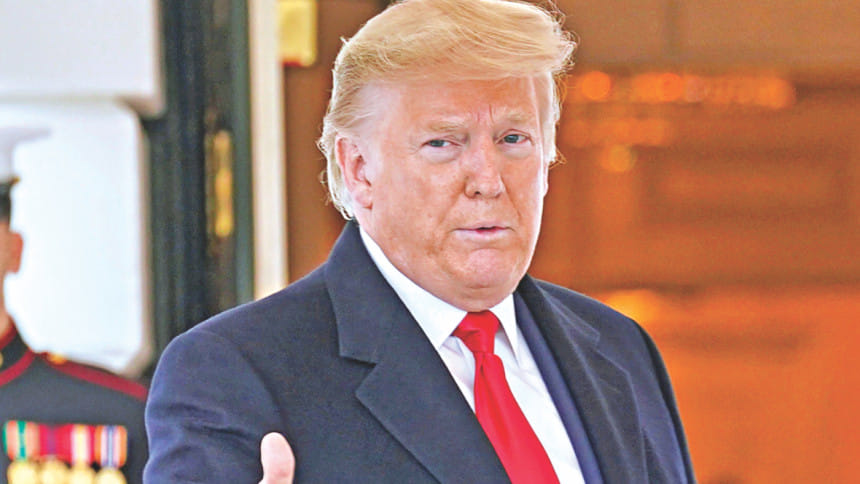‘Imperial presidency?’

President Donald Trump’s impeachment acquittal has delivered the White House a fresh coat of power, sparking worries over the rise of an “imperial presidency.”
His victory in the Senate trial on Wednesday accelerated a decades-long shift in the US government in which Congress has steadily ceded authority to the Oval Office.
The presidency hit a low in the 1970s, after Congress wrested authority away following Richard Nixon’s Watergate abuses. Since then, each successive US leader has sought to further dominate the legislature.
Trump, though, has sparked anxiety: he flaunts his power, and has an attorney general who favors a strong presidency and a Republican Party unwilling to restrain him.
One of his impeachment lawyers claimed Trump is free to do whatever he wants -- even cheat in elections -- if he believes it is in the national interest.
Trump himself says, citing the US Constitution: “I have the right to do whatever I want as president.”
“It is now arguable... that Donald Trump may well have become the most powerful president in American history,” historian Jon Meacham said after Trump’s trial closed. “President Trump is functionally a monarch at this point. If the king does it, it’s okay.”
After suffering under the British king, the architects of the US system of government crafted a constitution in 1789 that gave the legislature strong checks on the powers of the new nation’s chief executive.
Lawmakers held the upper hand mostly through the early 20th century, until, faced by existential emergencies -- the Great Depression and then World war II -- president Franklin Roosevelt rode roughshod over Congress to take action.
Since then, “we have seen a steady increase over time in the independent powers of the presidency,” said Mark Rozell, dean of the Schar School of Policy and Government at George Mason University. “This is not just a Republican thing. It’s presidents of both parties,” said Rozell.
Executive power got a considerable boost with the September 11, 2001 terror attacks.
Republican George W Bush went far beyond his statutory authorities to order actions like secret surveillance of Americans and abduction and torture of foreign fighters, claiming he had the right to do so to protect the country.
Congress did require him to obtain approval to make war on Al-Qaeda and Iraq. But they gave him broad authority, allowing the “War on Terror” to extend to Syria, Yemen and Africa under Bush and his successors.
Nearly two decades later, Congress worries that Trump could use the same powers to go to war with Iran.

 For all latest news, follow The Daily Star's Google News channel.
For all latest news, follow The Daily Star's Google News channel. 




Comments